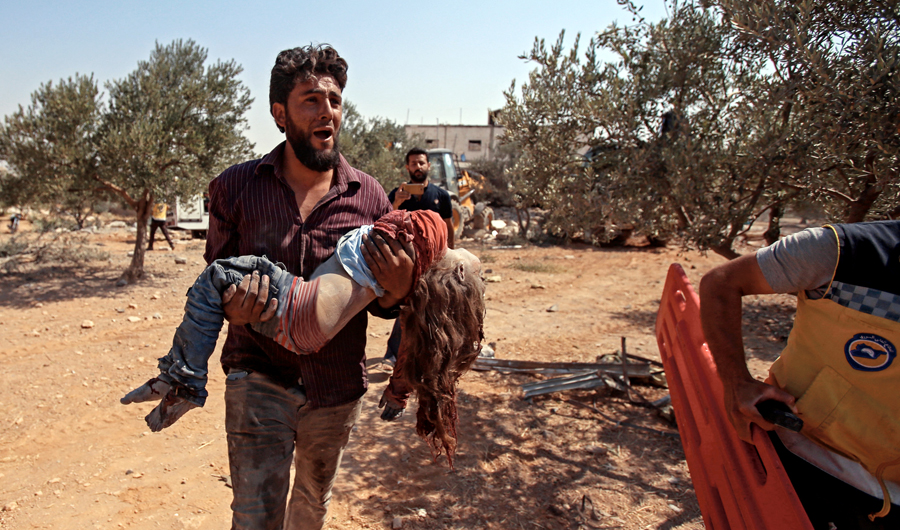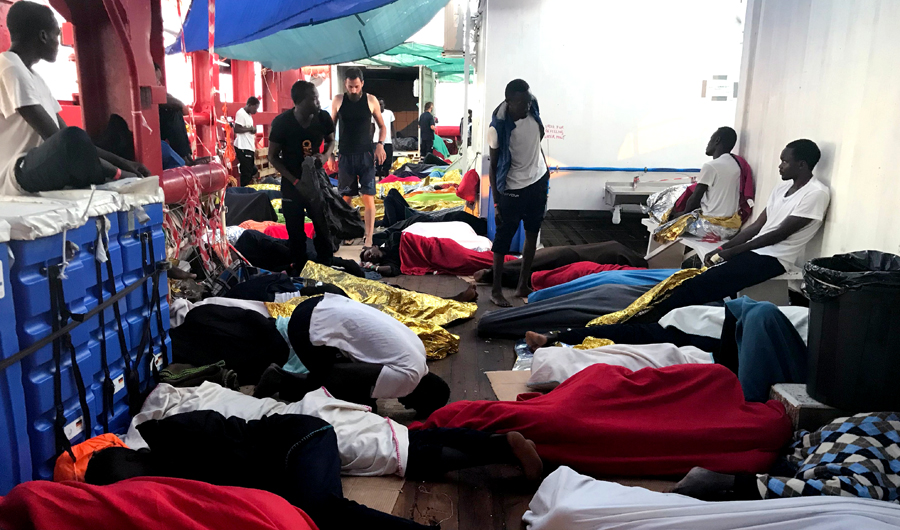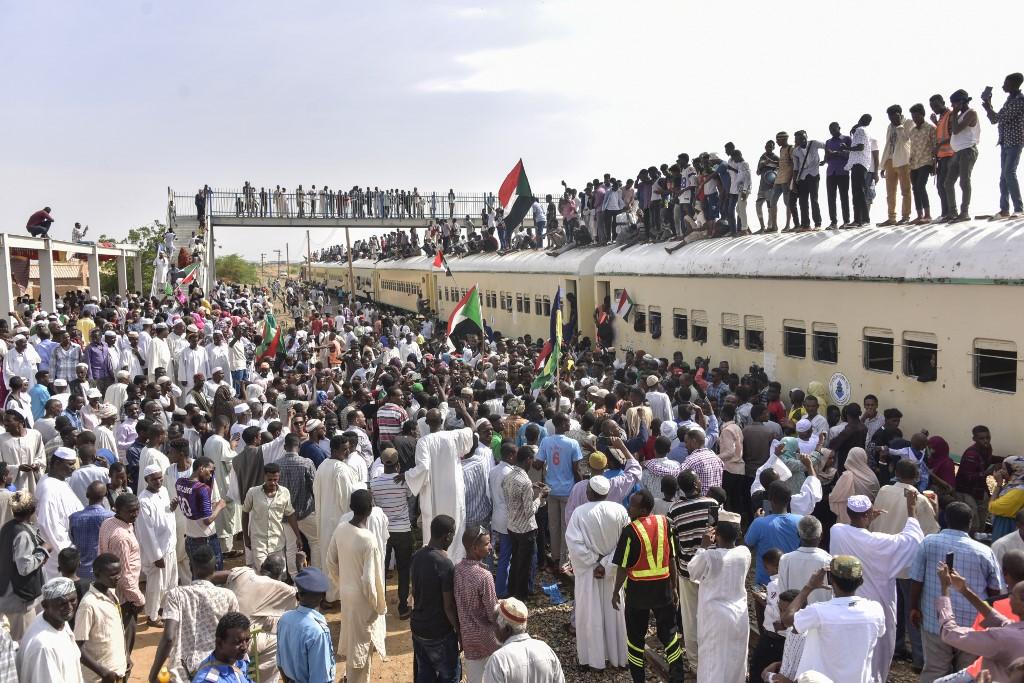Ways the Middle East is reducing food waste
DUBAI: As the world shifts to meet the UN’s Sustainable Development Goals related to hunger, food security and nutrition, a number of regional initiatives are seeking to help the Arab world. From Kuwait and Lebanon, to Palestine, Iraq, Egypt and the UAE, the Middle East is coming up with new sustainable solutions that are redefining the agriculture, farming and food industry.
Re:Food in Kuwait is one of them, having started in 2014 when its founder Maryam Aleisa and her family would take home-cooked food to people in need.
After studying abroad, Aleisa came back to Kuwait with a mission to give back to her country. “Kuwait generates so much waste and 50 percent of that is actually organic waste,” she said. “Most of it is food, and we have a huge waste culture when it comes to food, which is very disappointing and very sad. We have an abundance of products which leads to an abundance of waste as well, unfortunately.”
Re:Food was created as a solution to the food waste problem, after Aleisa acquired her environmental awareness from the University of Oregon, which gave her a perspective on recycling, waste management and reducing the carbon footprint. “That’s something I wanted to take with me to Kuwait,” she said. “I was looking at how best to tackle the issue of food waste from different channels and ways to manage it after looking at international models like the Greater Boston Food Bank and in Saudi Arabia.”
Most of the food waste takes place very close to the expiry date. And although Aleisa did not find a model to replicate, she created her own, catering to Kuwait.
“The easiest way to tackle it was through the fast-moving consumer goods sector,” she said. “I found a lot of resistance from suppliers at the beginning because they were not used to rechannelling the waste to something more useful. They were used to either selling it or just throwing it away.”
A major obstacle encouraging a lack of motivation among suppliers to collaborate was the absence of taxation from the Kuwaiti government when food is wasted, although it spends a lot to manage this waste. “It was a challenge,” Aleisa said. “I had to speak to the humanitarian side of people to get their attention about the problem because there’s a lack of environmental awareness in Kuwait.”
Following her mother’s monthly initiative of handing out food to needy families, she started building a database of local beneficiaries. “It grew into something huge, with more than 2,000 volunteers, gradually increasing to a full-time team,” she said.
Of Kuwait’s 17,820 square kilometers, more than 18 sq km are occupied by landfills, pointing to an urgent need to reduce food waste.
So far, the company has collaborated with more than 30 food and beverage companies in all food sectors. Most of the products received are organic, ranging from dairy, chocolate, pasta, dry milk and oil, due to their high cost and suppliers refusing to discount them.
FASTFACT
820 m – Number of people who are hungry today.
11% – Level of world hunger in the past three years.
50% – Proportion of Kuwaiti landfills that are filled with organic waste.
1,700 – Number of families who benefit from Re:Food’s packages in Kuwait.
70 – Hectares: Size of Egypt’s desert that was revitalized by Sekem.
800 -Number of farms Sekem works with.
It also started distributing packages to more than 1,700 families, with the aim of reaching 2,000 by the end of the year, and individual packages began a few days ago.
The youth-founded initiative won the Kuwait Youth Award for Excellence and Creativity of 2018, and Aleisa has been recognized as one of the 30 Arab Hope Makers
of 2017.
Hessa Alfadgosh, part of the managing team, spoke of a prevalent food waste culture in the region. “We always cook more than we can eat,” she said. “Leftover food (can still be eaten) and, at the same time, companies produce excess food without thinking about leftovers. We were shocked that most of the wasted food isn’t expired but, because of lack of space, they throw it away.”
Also tackling food waste in the region is Philippe Rahbe, who has just launched Too Good to Waste in Lebanon. The French-Lebanese plans on collecting leftover food from supermarkets and grocery stores and transforming them into five-star dishes thanks to the help of chefs. They will then be sold to those in need at a cheaper price through pop-up meals in specific neighborhoods.
“I’ve been in the food sustainability industry for the past five years, starting in France,” he said. “Then I was a grocery store manager in Lebanon and found out there is too much food waste on the retaining phase of the food industry. I saw a terrible figure that said that a third of food is wasted globally, which is also the case in Lebanon and the MENA region, so I said I have to do something about it.”
“I was looking at how best to tackle the issue of food waste from different channels and ways to manage it after looking at international models like the Greater Boston Food Bank and in Saudi Arabia.
Maryam Aleisa, Founder of Re:Food in Kuwait
The idea kicked off as a trial through community-based event Disco Soup, where he would visit fruit and vegetable markets and cook dishes from their leftovers. “We found people were very interested in this and it encouraged us to keep going,” Rahbe said. “A third of the Lebanese population experiences hunger so I decided to do something about (it).”
Nassim Caesar is another Lebanese who believes in preventing food waste. His company, Caesar Cider, works with 250 small apple producers in the country.
“Lebanese apples used to be imported through Syria inland to our big markets like Jordan, Egypt, Saudi Arabia and sometimes Iraq,” he said. “So border closure has meant exports by sea, which has increased the cost.” Other crises, such as currency inflation in Egypt, increased competition from European apples in the GCC and climate change, have weakened the Lebanese apple industry. “Climate change has impacted agriculture as a whole, as well as a water shortage,” said the agricultural engineer and rural development specialist.
“We had hail in spring too and a lot of pests invaded, so we need a holistic pest management program for our farmers.”
Given that most of the farmers are older and set in their ways, implementation has proven tough, with many having to cut down their orchards or slow down their production. “Our mission is to create a push for a circular economy, producing local, consuming local,” Caesar said. “We work with apple farmer groups or cooperatives, we buy unwanted apples too, either scratched or damaged, collect juice, ferment it and transform it into fresh apple cider.”
He spoke of a prevalence in food waste in a once-a-year harvest crop. “It takes a lot of water to produce these apples and it’s a loss just to have them being thrown,” he said. “So we should keep local production and make use of it.”
In Egypt, Sekem is using more sustainable biodynamic agricultural methods to revitalize 70 hectares of the country’s desert. From herbs and fruits, to vegetables and other crops, it works with more than 800 farms in the region, with the returns partly reinvested into social and cultural activities, such as children’s education and a medical center.
“When I visited Egypt in 1975, I realized the bad circumstances that it had got into,” said Sekem’s founder, Dr. Ibrahim Abouleish, who had moved to Austria in 1956 before returning to Egypt in 1977.
“I developed the Sekem vision out of my own experiences in the past years: Sustainable development toward a future where every human being can unfold his individual potential, where mankind is living together in social forms reflecting human dignity, and where all economic activity is conducted in
accordance with ecological and ethical principles.”
In 2003, the Schwab Foundation selected him as one of the world’s outstanding social entrepreneurs. That same year, he received the “Right Livelihood Award,” also known as the Alternative Nobel Prize, for “demonstrating how a modern business model combines profitability and success in world markets with a humane and
spiritual approach to people while maintaining respect for the environment.”
In the UAE, a number of initiatives have also taken root, from My Arabian Almanakh, an urban gardening journal which creates awareness even in urban environments such as Dubai, and the Ramadan Sharing Fridges Campaign, with about 200 fridges spread across Dubai allowing people to donate food to the needy.
And the world is in need of more action as the number of people who suffer from hunger has slowly increased. More than 820 million people — about one in every nine people — are hungry today, according to the UN’s Food and Agriculture Organization.
After decades of steady decline, the 2019 State of Food Security and Nutrition in the World revealed that the trend in world hunger reverted in 2015, remaining virtually unchanged in the past three years, at a level slightly below 11 percent.
In the Arab region, countries affected by conflict, such as Syria, Iraq and Yemen, are the most affected, with an almost doubling in the number of undernourished between 2010 and 2018.
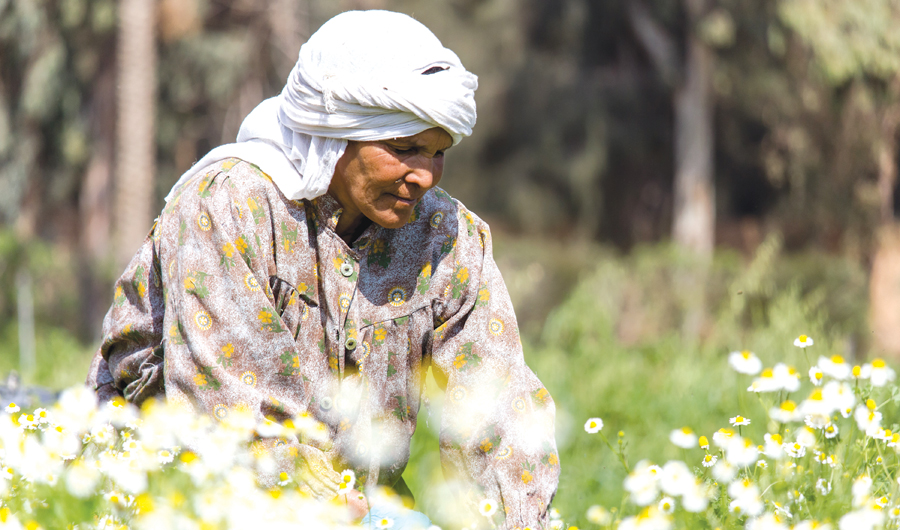

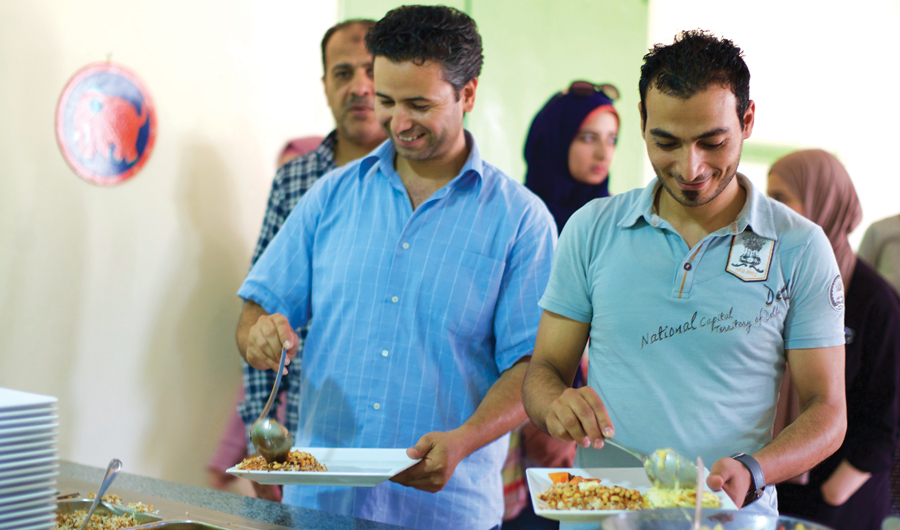
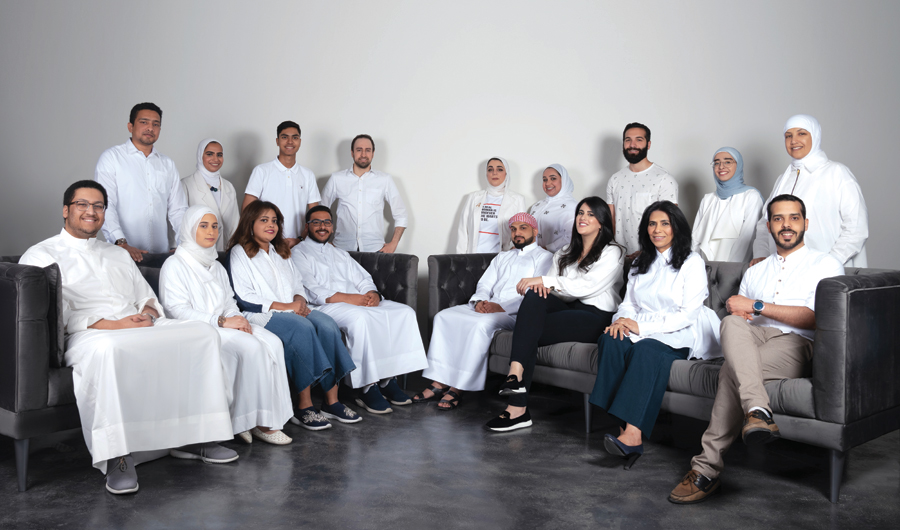

PIF buys 50% stake in Gulf food giant AmericanaLeader of biggest US organic food fraud gets 10-year jail term
